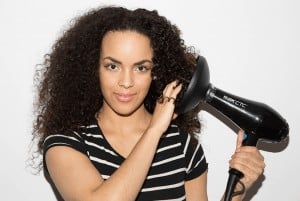The article is developed in partnership with BetterHelp.
Many people struggle with body image issues before their wedding. After all, there is a lot of pressure of knowing you’re going to be getting married in front of a large crowd of people who will all be looking at you. You may even feel like purchasing a dress that is one size too small to motivate yourself.
Unfortunately, these feelings can often be a sign of body dysmorphic disorder, which is a condition characterized by frequent checking of the body, frequent negative thoughts about the body, and feelings of low self-worth due to those thoughts. It can also accompany an eating disorder but doesn’t always.
If you are struggling with body dysmorphia before your big day, we’ve come up with a guide to help you get through it so you can get back to your wedding planning checklist.
What Can I Do To Lessen Body Dysmorphia Before My Wedding?
Here are a few ideas on reducing your feelings of body dysmorphia and getting help.
Speak to Someone
The most important and most beneficial item on this list is speaking to someone who can help. A counselor or therapist will be able to talk to you more about body dysmorphia and how it might be affecting your wedding and your own mental health.
You may feel that your negative self-talk is merely a way to motivate yourself. However, being hostile towards our bodies is never productive. It can lead to worsening problems with food, eating, drinking, compulsive behaviors, and even life-threatening eating disorder symptoms.
If you aren’t sure you want to see a counselor long-term but just want some advice, you can schedule one or two appointments and leave it at that. It’s more helpful to get a little bit of help than none at all.
Wear Your Size
You may have urges to size down on your wedding dress or use pants that are too small at your wedding ceremony or in day-to-day life. If that sounds like you, it may actually help you more to make sure you wear your correct size.
Small clothes are extremely restricting and can make your body spill out or even get injured. With clothes that are the right size, they’ll hug your body perfectly, be comfortable to use, and you’ll be able to have normal movements without risk of injury.
You may also feel more attractive in clothing that is your size because it’ll look good on your body. Smaller clothing may look like it doesn’t really fit in.
If you’re struggling with the idea of doing this, it may be helpful to ask yourself why. Speaking to a therapist is another good way to discuss this urge and find a healing opportunity.
Journal About Your Feelings
Journaling is helpful for everyone, but it can especially be helpful to people who are about to get married, as marriage is one of the most stressful (and exciting) events of your life!
Journal about how you’re feeling about your body and appearance. Try to find at least three good things about your appearance each day, and make it a goal to continue to work towards a better body image over time (meaning self-acceptance or healthy weight loss).
Cut Out Negative Influences
At times, our negative self-talk can actually come from other people. If you feel that you are looking bad before your wedding day because someone in your life told you that you look bad, it might be time to reconsider their part in your life.
People who love you will never call you names, tear you down, or tell you to lose or gain weight. They will support you in your healthy choices and bring concerns up to you in a healthy way. Some examples of red flag statements from people in your life can include:
- You look so big in that
- Your arms are so weird
- You have too many freckles
- Why would you wear that with your body type?
- You shouldn’t wear a short dress; it’s not made for you
- Make sure you wear something poofy so that it doesn’t show your stomach
- You need to lose weight before you get married
If you hear things like these from someone in your life, it’s time to reconsider the relationship. You may want to cut them out of your wedding or take some space. If it’s someone like a parent or close family member, you will want to work on setting boundaries.
Conclusion
If you’re dealing with body dysmorphic disorder or dysmorphia in general before your wedding, you may want to read here about more info on the condition and ways to get help.
You’re not alone, and many people struggle with these thoughts daily. Try to be kind to yourself as you deal with this new information.
